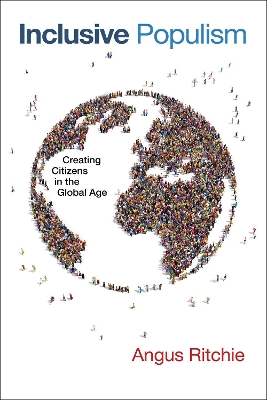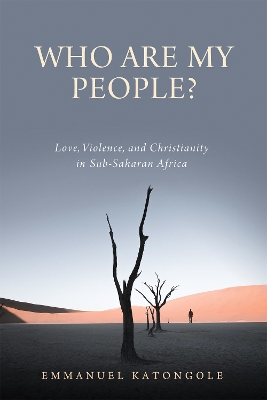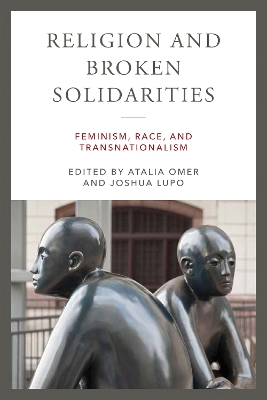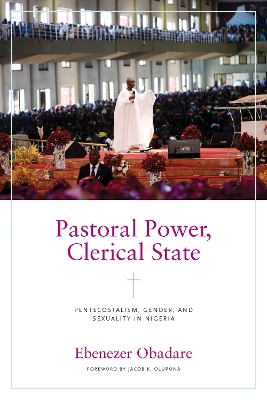Contending Modernities
4 total works
In this first volume in the Contending Modernities series, Inclusive Populism: Creating Citizens in the Global Age, Angus Ritchie claims that our current political upheavals, exemplified by the far-right populism of billionaire Donald Trump, reveal fundamental flaws in secular liberalism. Ritchie maintains that both liberalism and this "fake populism" resign citizens to an essentially passive role in public life.
Ritchie argues instead for an "inclusive populism," in which religious and nonreligious identities and institutions are fully represented in the public square, engaging the diverse communities brought together by global migration to build and lead a common life. Drawing on twenty years of experience in action and reflection in East London, Ritchie posits that the practice of community organizing exemplifies a truly inclusive populism, and that it is also reflected in the teaching of Pope Francis.
Speaking to our political crisis and mapping out a way forward, Inclusive Populism will appeal to thoughtful readers and active citizens interested in politics, community organizing, and religion.
Who Are My People? explores the complex relationship between identity, violence, and Christianity in Africa.
In Who Are My People?, Emmanuel Katongole examines what it means to be both an African and a Christian in a continent that is often riddled with violence. The driving assumption behind the investigation is that the recurring forms of violence in Africa reflect an ongoing crisis of belonging. Katongole traces the crisis through three key markers of identity: ethnicity, religion, and land. He highlights the unique modernity of the crisis of belonging and reveals that its manifestations of ethnic, religious, and ecological violence are not three separate forms of violence but rather modalities of the same crisis. This investigation shows that Christianity can generate and nurture alternative forms of community, nonviolent agency, and ecological possibilities.
The book is divided into two parts. Part One deals with the philosophical and theological issues related to the question of African identity. Part Two includes three chapters, each of which engages a form of violence, locating it within the broader story of modern sub-Saharan Africa. Each chapter includes stories of Christian individuals and communities who not only resist violence but are determined to heal its wounds and the burden of history shaped by Africa’s unique modernity. In doing so, they invent new forms of identity, new communities, and a new relationship with the land. This engaging, interdisciplinary study, combining philosophical analysis and theological exploration, along with theoretical argument and practical resources, will interest scholars and students of theology, peace studies, and African studies.
Religion and Broken Solidarities
The contributors to this original volume provide a new and nuanced approach to studying how discourses of religion shape public domains in sites of political contestation and "broken solidarities."
Our public discourse is saturated with intractable debates about religion, race, gender, and nationalism. Examples range from Muslim women and headscarves to Palestine/Israel and to global anti-Black racism, along with other pertinent issues. We need fresh thinking to navigate the questions that these debates raise for social justice and solidarity across lines of difference. In Religion and Broken Solidarities, the contributors provide powerful reflections and wisdom to guide how we can approach these questions with deep ethical commitments, intersectional sensibilities, and intellectual rigor.
Religion and Broken Solidarities traces the role of religious discourse in unrealized moments of solidarity between marginalized groups who ostensibly share similar aims. Religion, the contributors contend, cannot be separated from national, racial, gendered, and other ways of belonging. These modes of belonging make it difficult for different minoritized groups to see how their struggles might benefit from engagement with one another. The four chapters, which interpret historical and contemporary events with a sharp and critical lens, examine antisemitism and anti-Muslim racism in the Women's March in Washington, DC; the failure of feminists in Iran and Turkey to realize a common cause because of nationalist discourse concerning religiosity and secularity; Black Catholics seeking to overcome the problems of modernity in the West; and the disjunction between the Palestinian and Mizrahi cause in Palestine/Israel. Together these analyses show that overcoming constraints to solidarity requires alternative imaginaries to that of the modern nation-state.
Contributors: Atalia Omer, Joshua Lupo, Perin Gurel, Juliane Hammer, Ruth Carmi, Brenna Moore, and Melani McAlister.
Ebenezer Obadare examines the overriding impact of Nigerian Pentecostal pastors on their churches, and how they have shaped the dynamics of state-society relations during the Fourth Republic.
Pentecostal pastors enjoy an unprecedented authority in contemporary Nigerian society, exerting significant influence on politics, public policy, popular culture, and the moral imagination. In Pastoral Power, Clerical State, Ebenezer Obadare investigates the social origins of clerical authority in modern-day Nigeria with an eye to parallel developments and patterns within the broader African society.
Obadare focuses on the figure of the pastor as a bearer of political power, thaumaturgical expertise, and sexual attractiveness who wields significant influence on his church members. This study makes an important contribution to the literature on global Pentecostalism. Obadare situates the figure of the pastor within the wider context of national politics and culture and as a beneficiary of the dislocations of the postcolonial society in Africa's most populous country. Obadare calls our attention to the creative ways in which Nigeria's Pentecostal pastors utilize religious doctrines, beckon spiritual forces, and manipulate their alliances with national powerbrokers to consolidate their influence and authority.
In contrast to rapidly eroding pastoral authority in the West, pastoral authority is increasing in Nigeria. This engaging book will appeal to those who want to understand the far-reaching political and social implications of religious movements-especially Christian charismatic and evangelical movements-in contemporary African societies. It will be of interest to scholars and students of sociology, religion, political science, and African studies.



